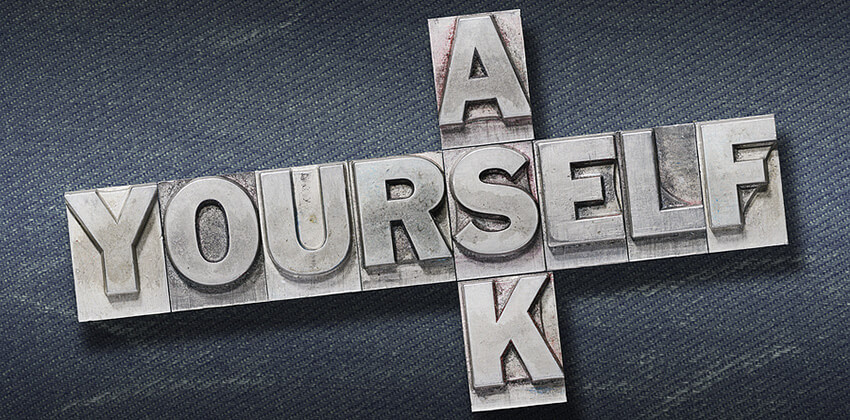
No matter why you have lost your job, whether it resulted from the coronavirus pandemic or a dispute with your manager, your instincts are probably not as fine-tuned as the lobster’s.
Growth for a lobster is risky.
Shell-less and hiding from predators for nearly two months every year until a new shell is formed, the lobster knows instinctively it must endure this process again and again to survive.
We rarely see thrust-upon-us growth that way.
Yet recovery from job loss can be a time of profound personal learning and insight.
While reflection, transition, and emotional-baggage shedding may be painful, to survive and thrive with career prosperity, you must be like a lobster, shedding and growing, too. Then, you’ll be able to use your new found inner discovery and wisdom to capture that next great job.
Becoming a Thriver
If you grow as a result of this defining moment, you won’t be perceived as dwelling on why you lost your job, but instead offering insight into your determination, authenticity, and learning capacity.
If you grow, you won’t be facing toward your past, but moving toward your future. And if you grow, you won’t be seen as a victim, but as a thriver.
What do you tell your next employer?
Take the initiative to authentically craft a discussion around the following questions, and you’ll set yourself apart, remain future-focused, and offer an intriguing combination of a thought-provoking and growth oriented individual.
Consider:
1: What have I learned?
Enhanced self-knowing yields big results. What have you learned as a result of job loss? About your resilience, passion, focus, fortitude, abilities, beliefs, or goals? What do you know now about you that you didn’t know before you lost your job?
As a result of being fired from my first professional job, I came to realize (with time) that I deserved to be fired. Accepting the accountability was a powerful learning. As a result, I discovered not only what I wasn’t good at, but what I was and how to leverage that knowledge into a successful career.
As psychologist Albert Ellis remarked,
“The best years of your life are the ones in which you decide your problems are your own. You do not blame them on your mother, the ecology, or the president. You realize that you control your own destiny.”
2: What have I done?
Based on what you learned as a result of your job loss experience, what have you done?
- Have you changed direction?
- Have you enhanced your current skills or learned new ones?
- Have you realigned your focus?
- Have you embraced a new passion?
- Have you worked on a life-dream?
It’s not enough to learn and grow from this experience. There is a big difference between people who know and people who do. You need to be both.
Having self-knowledge and leveraging it into the future you want requires action.
As personal development author, Jim Rohn put it,
“We must all suffer one of two things: the pain of discipline or the pain of regret or disappointment.”
When you’re actively engaged in the discipline of reclaiming your career future, you won’t regret it.
3: What am I able to do now?
Equipped with inner work and self-knowledge, devoid of the emotional job-loss-baggage that clings like barnacles to a pier, and actively engaged in the discipline of doing – so what?
- What are you now able to do, accomplish, or achieve that you were not able to do before all this happened?
- What has enabled you to now do something you could not do then? What have you learned? How have you grown?
This is the question that answers whether or not your equivalent of a new “lobster-shell” has grown back. How thick is your skin? How realistic is your future vision? How okay are you emotionally? How renewed and determined is your spirit?
This is not the tell-them-what-they-want-to-hear section. This question brings clarity to the fact that you have gone through the transition stages and are, indeed, ready for a new and successful beginning. See my article, “Coming to Terms with Change: Letting Go”.
How You Take the Ride
Life is the process of self-discovery. It’s your ride. You can take it screaming or laughing.
Use this job loss experience to uncover more about who you are at the core, the resilient strengths you possess, and what matters to you.
If you do the inner work to answer these self-defining “what” questions, job loss will be a growth experience for you. And if it is, the person on the other side of that employment door will clearly know you can handle the next ride.
More About Recovering from Job Loss:
- 3 Tracks to Accelerate Your Recovery from Job Loss
- Coming to Terms with Change: Letting Go
- Handling Job Loss Worries
- Reclaiming Career Prosperity
- 4 Things to Know About Your Job Loss
- We ALL Need Help Sometimes
- 7 Steps to Restart Your Job Search Momentum
- How to Get Your Job Search Unstuck
- 3 Evergreen Keys to Job Loss Recovery
- Beating the Job Search Blues
About this author…

Job Loss Recovery Expert Nan S. Russell discovered a Stanford degree didn’t protect her from being fired from her first professional job. From minimum wage to Vice President of a multi-billion dollar company, she learned the hard way. Now she helps others with what does and doesn’t work at work. The author of three career books including, The Titleless Leader, Hitting Your Stride, and Nibble Your Way to Success, Nan is a national speaker and work issues consultant. More at NanRussell.com; and her job loss seminar: Rebooting After Job Loss.
Don't forget to share this article with friends!




